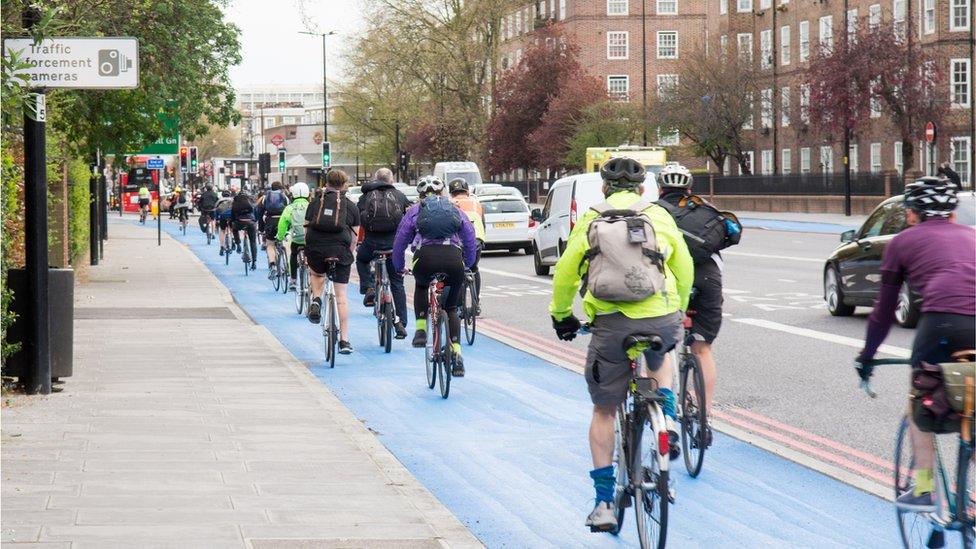'Over-reliance' on cars in Wales threatens carbon target
- Published
- comments
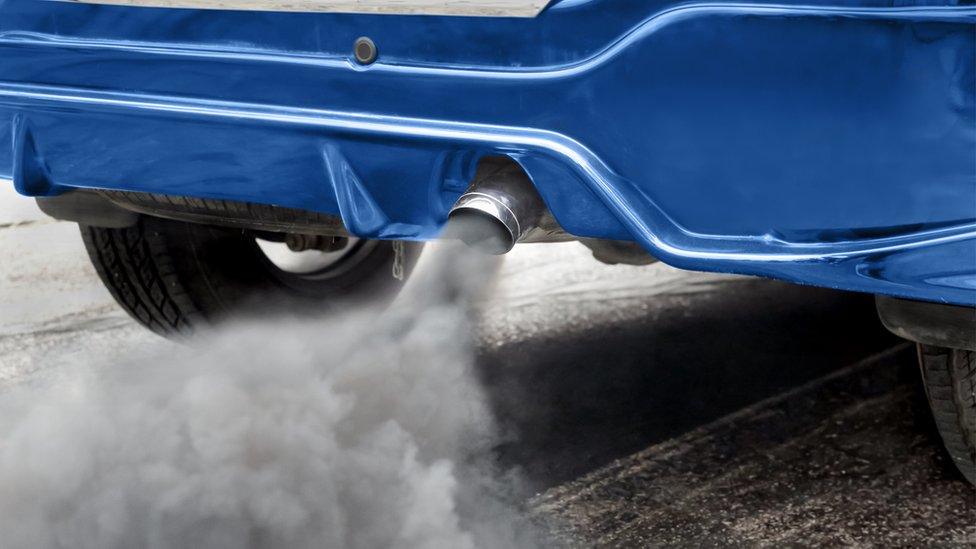
The sale of new petrol and diesel cars in the UK will be banned from 2040
People rely too much on cars and Wales faces failing to hit carbon emission targets as a result, a report has said.
Emissions must by slashed by at least 80%, external by 2050 under targets set in the Environment (Wales) Act 2016.
But a report by the Institute of Welsh Affairs (IWA) said buses were in "serious long-term decline" and rail only covered a small area.
The Welsh government said it was "committed to tackling decarbonisation" and would consider the recommendations.
Data from the 2011 census said 84% of the distance covered by people on personal journeys was by car.
The report said travelling in Wales could be challenging as the "topography, history and economic development have not been conducive to the development of a cohesive network that links people and communities".
It also acknowledged data had been hard to come by as there had been no Wales-specific national travel survey since 2013 when responsibility was transferred from Westminster and Wales dispensed with it.
However, report author Chris Roberts said: "Transport in Wales is dominated by the car, more than in any other region or nation in the UK.
"Given that the sale of new petrol and diesel cars is to be banned from 2040, there is a clear need for managed change in Wales' transport system."
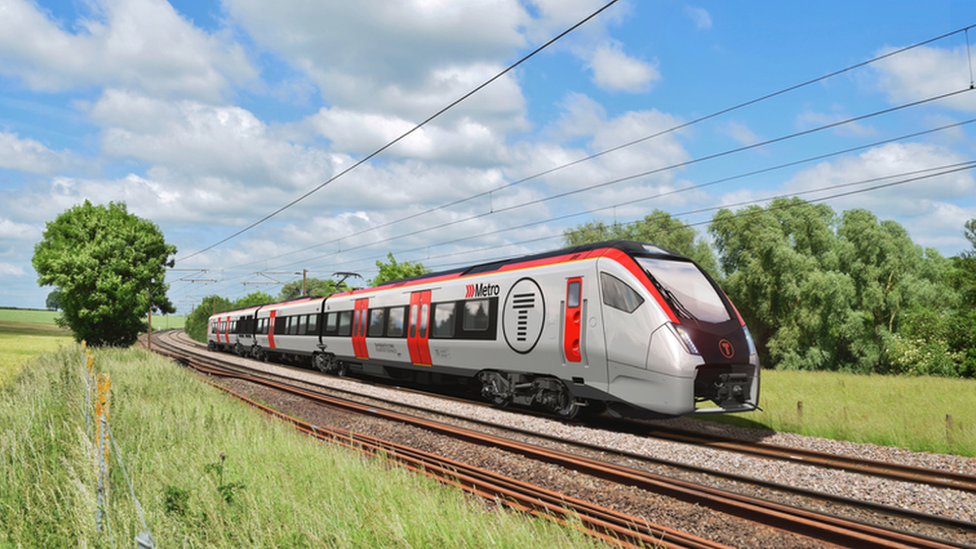
The report welcomed the announced on the South Wales Metro
He said despite efforts to encourage more people to cycle, numbers were static or declining.
Department for Transport figures showed journeys on buses in Wales fell from 123 million in 2004-05 to 100 million in 2016-17, along with about 21 million rail journeys in 2016-17.
The report was being written as the new South Wales Metro announcement was made and "warmly welcomes" the plans.
However, it said details other than those centred around heavy rail "remain quite vague" and the scheme "will only function effectively if it employs buses as well as rail".
A spokeswoman said the Welsh Government had been proactive in supporting hydrogen technology and has announced an extra £60m for its active travel plan.
She added: "The recommendations put forward in this report will be taken into consideration alongside the excellent work we are already undertaking in this area as we plan for a decarbonised future."

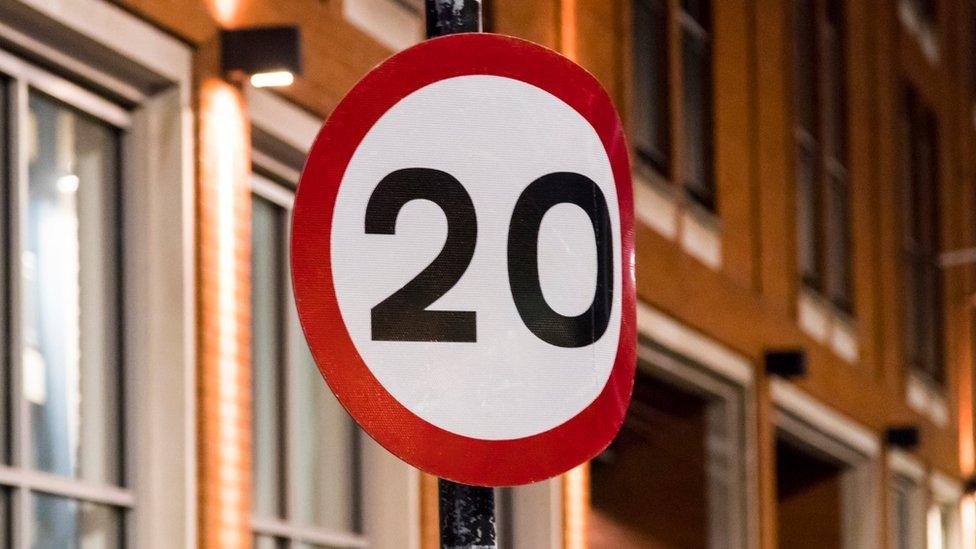
Recommendations include:
A default 20mph zone in built-up areas, with exemptions allowed
Transport for Wales to prioritise integrating buses into the South Wales Metro
Taking steps towards a green bus fleet "with the utmost urgency"
Making sure new Metro trains have adequate space for bikes
- Published16 June 2018

- Published4 June 2018
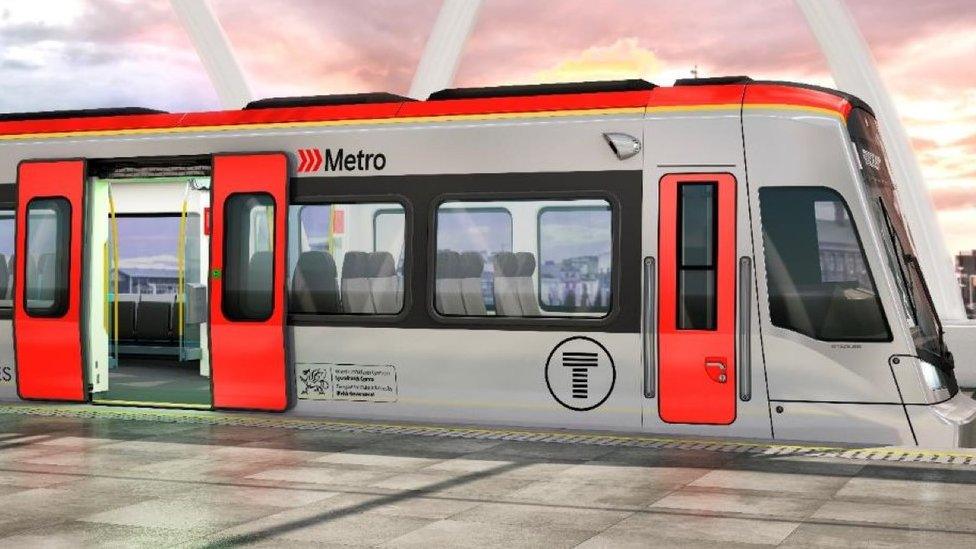
- Published24 May 2018
